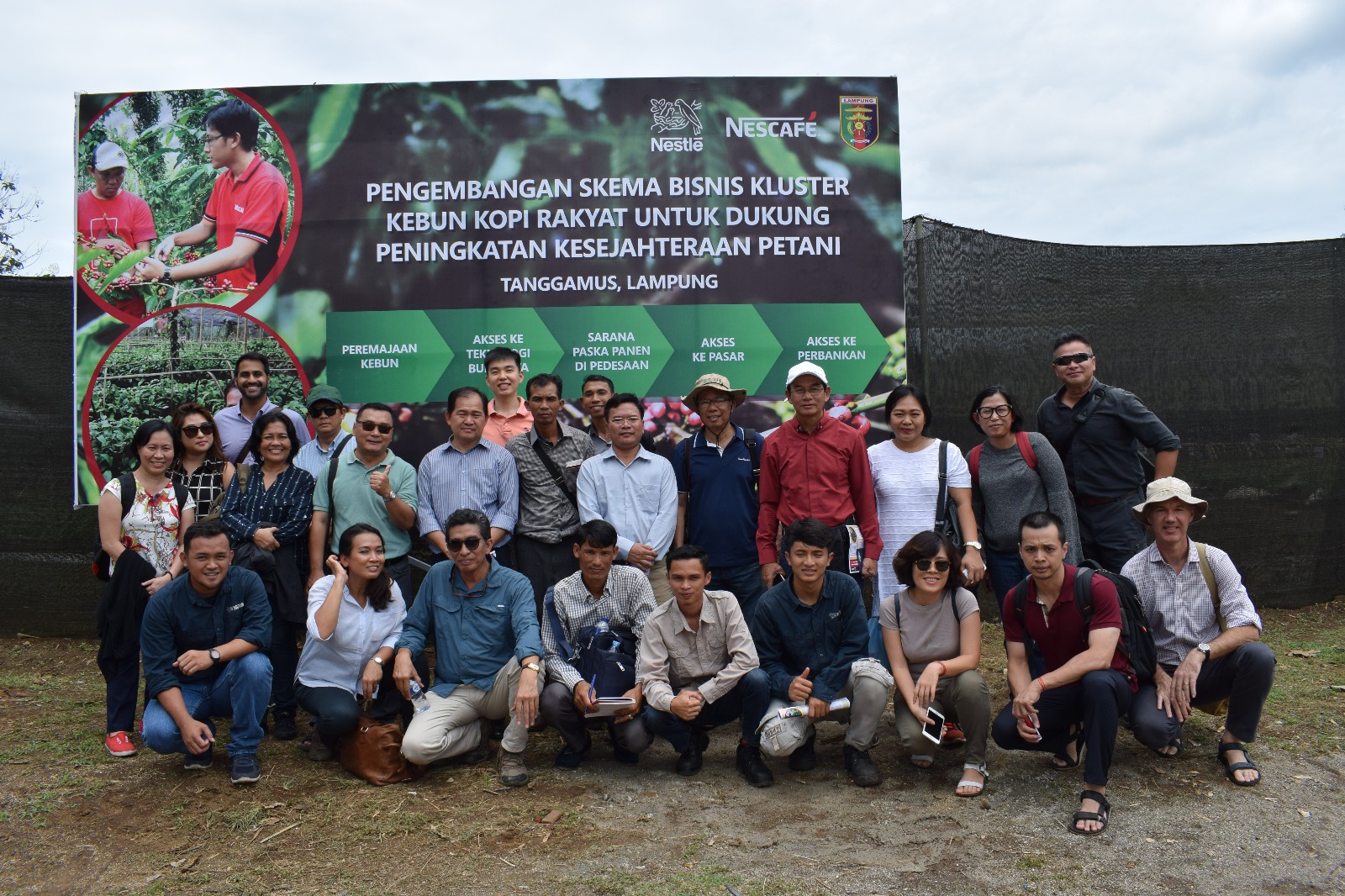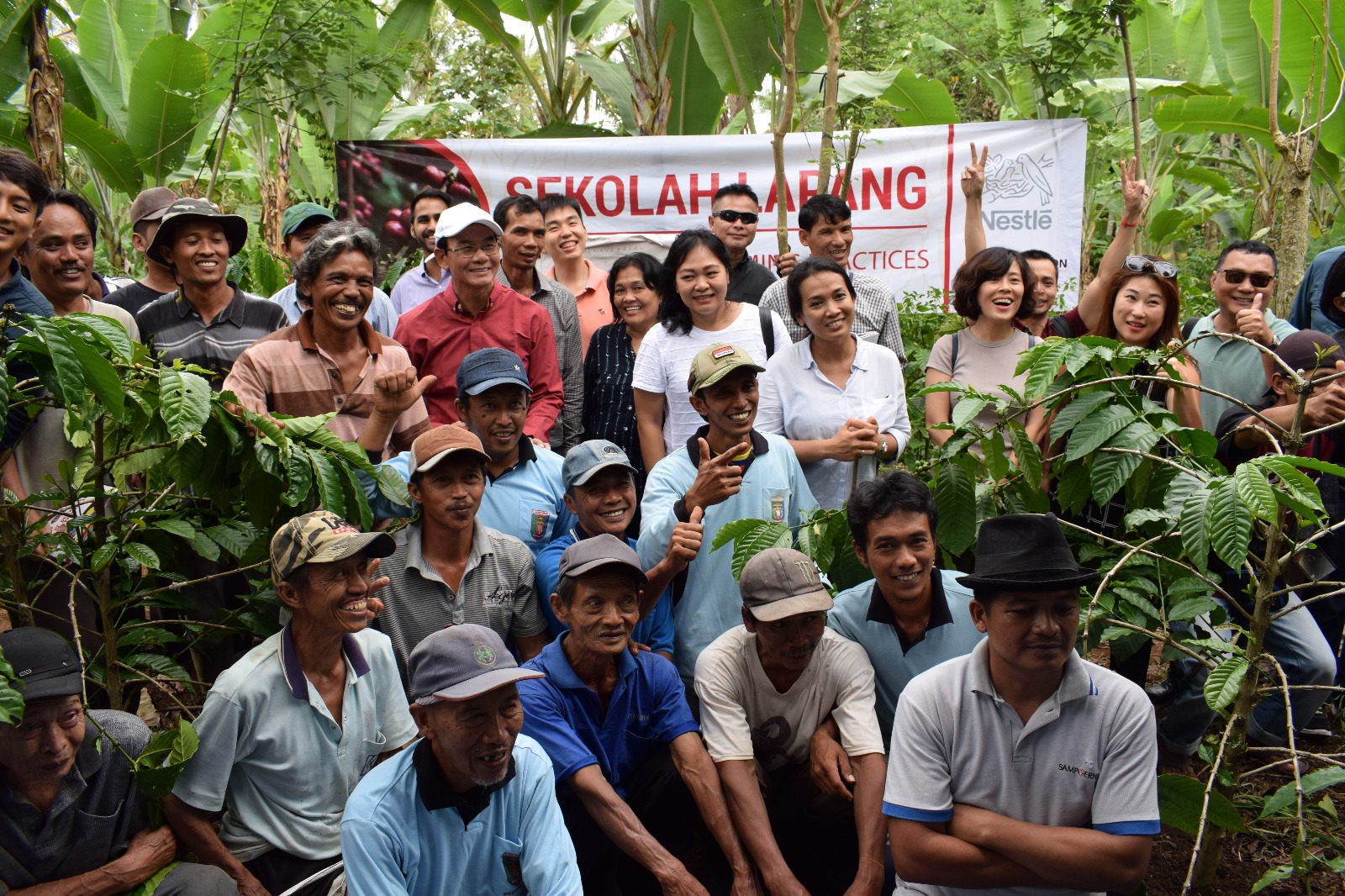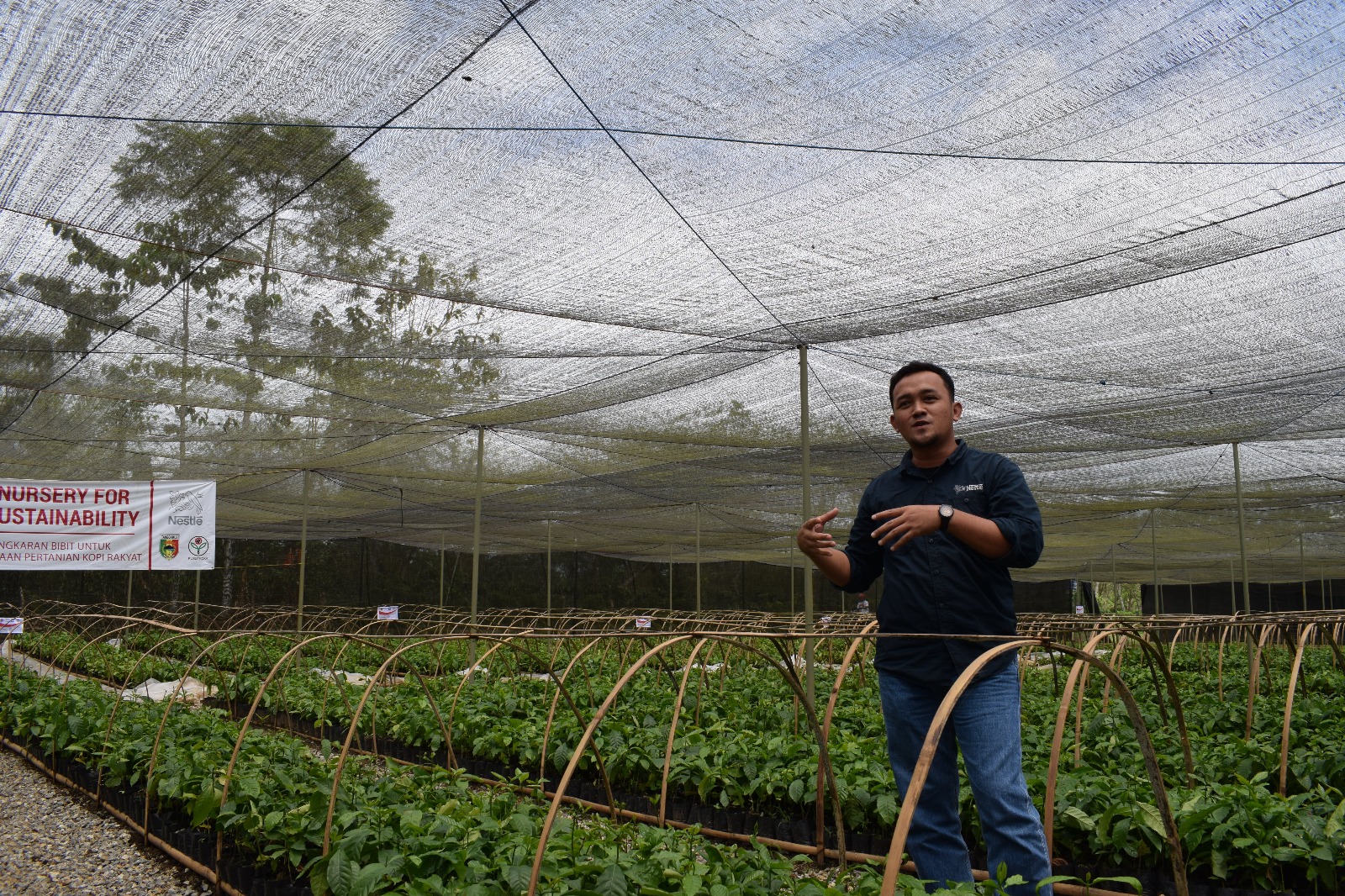A Compelling Case for Multi-Stakeholder Cooperation from Lampung, Indonesia

My eyes were fixed on the changes of scenery during a 2.5-hour road trip to the Tanggamus regency in Lampung Province, in mid of October. The sight was constantly changing; from local fried chicken stalls to yellowish paddy fields, from rubber plantations to the busy life of local residents, which all lead to the beauty of Tanggamus mountain, standing strong ahead of us.
I was a participant in a field trip arranged by Grow Asia to a sustainable coffee project led by Nestlé Indonesia, which is part of the Partnership for Indonesia’s Sustainable Agriculture (PISAgro). The trip was part of the annual Grow Asia Practitioners’ Workshop, and members from the five Grow Asia Country Partnerships took part to learn good agricultural practices from each other.
 This Nestlé Indonesia coffee project is a showcase for a successful partnership: it involves different partners throughout the value chain, with Syngenta and Yara at the input stage, empowering local communities in the plantlet nurseries, The Rainforest Alliance in training smallholder farmers, Rabobank and Bank BTPN, as well as an association of local farmer entrepreneurs, “Kelompok Usaha Bersama” (KUB), who play a significant role as aggregators, trainers, quality controllers and financial administrators.
This Nestlé Indonesia coffee project is a showcase for a successful partnership: it involves different partners throughout the value chain, with Syngenta and Yara at the input stage, empowering local communities in the plantlet nurseries, The Rainforest Alliance in training smallholder farmers, Rabobank and Bank BTPN, as well as an association of local farmer entrepreneurs, “Kelompok Usaha Bersama” (KUB), who play a significant role as aggregators, trainers, quality controllers and financial administrators.
“At the beginning, we wanted to ensure that smallholders in the region were closely involved in producing coffee that met international quality standards,” said Mr. R. Wisman Djaja, Director of Sustainable Agriculture Development and procurement of Nestlé Indonesia to the field trip participants.
As a follow up, in 2012 Nestlé Indonesia set up a team of agronomists and established a demo farm in the Paneyongan village where five different seeds from the Indonesian Coffee and Cocoa Research Institute in Jember are planted. The grown seeds are then distributed to local farmers as part of a replanting program in the area because, according to Mr. R. Wisman Djaja, most coffee plants in the region are more than 30 years old.
Fertilizers and farming techniques are also tested to give smallholder farmers the much needed training and guidance on good agricultural practices. This ensures that farmers receive the best price possible, while Nestlé Indonesia maintains the international quality standard of coffee beans required.
In partnership with The Rainforest Alliance, a non-governmental organization that leads the training and certification of the smallholder farmers in this area, Nestlé Indonesia worked with 19,000 farmers who are trained and certified with 4Cs (Common Code for the Coffee Community). These farmers production yields increases from 0.8 tons per hectare area to 1.2-1.3 tons per hectare area, which means their income also increasing by more than 80 percent.
Around 16,000 farmers in the area also now have access to branchless banking services under the “Lakupandai”, a program from local bank BTPN, one of the stakeholders in the partnership.
 KUB employees, who act as community leaders and aggregate the local smallholders’ production, are accommodating coffee farmers. Nestlé has trained them to sort and grade the coffee beans by quality, so that farmers with high quality, well-harvested and properly dried beans will get a better price. All coffee beans are traceable, with labels posted on the coffee sack before they are sent to Nestlé Indonesia.
KUB employees, who act as community leaders and aggregate the local smallholders’ production, are accommodating coffee farmers. Nestlé has trained them to sort and grade the coffee beans by quality, so that farmers with high quality, well-harvested and properly dried beans will get a better price. All coffee beans are traceable, with labels posted on the coffee sack before they are sent to Nestlé Indonesia.
During the field trip, we visited one of the nine KUB processing facilities, called “Mawar”, which was established in 1997. They gave us a tour of the operation and explained their effective methods for sorting beans and ensuring pricing transparency, a standard requested by Nestlé. This fair and transparent process inevitably strengthens the bond between seller and buyer, which helps create a sustainable value chain for the program.
We also visited a field school with dozens of farmers gathered to learn best practices from a certified instructor, with specific modules tailored to meet the needs of the farmers. That day, farmers learned how to properly cut branches from coffee trees to improve yields. To everyone’s amusement we were also tasked to try the exercise, and it proved harder than expected.
The field trip gave participants a thorough understanding of how a successful value chain approach can be adopted. The program engages various stakeholders in an inclusive cooperation, all of which are working together to create a sustainable partnership. All participants agreed it was a valuable and fruitful field trip, and there are learnings we can all take back to our own work.
By Dewi Kurniawati – Communication Manager, Partnership for Indonesia's Sustainable Agriculture (PISAgro)